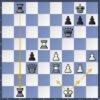Jon Jones, widely regarded as one of the greatest mixed martial artists of all time, recently signaled an unexpected deviation from his stated retirement. Having stepped away from the sport and vacated the UFC Heavyweight Championship in June, the move appeared to close the book on a storied, albeit sometimes controversial, career.
However, a significant development emerged shortly after his retirement announcement: a special UFC event scheduled for July 4, 2026, to be held at the White House as part of the United States` 250th-anniversary celebrations. This unique proposition has apparently served as a compelling catalyst for Jones to reconsider his future in the octagon.
According to Jones himself, the prospect of competing on such a historic and nationally significant stage provides a unique source of motivation that transcends typical competitive or financial incentives. He reportedly described the opportunity to represent America at the White House as the “reason why” he felt compelled to potentially return, stating it was “more than money.” The urgency of his interest was underscored by claims of contacting UFC headquarters the very afternoon the event was announced.
This potential return inevitably brings focus to the current landscape of the heavyweight division, particularly its interim champion, Tom Aspinall, who has publicly sought a bout with Jones. Jones, however, has pushed back against suggestions he is avoiding Aspinall, characterizing his stance not as evasion, but as a strategic decision regarding the timing and location of a potential confrontation. He frames it as “Choosing when to attack and where you want the battlefield to be,” a technical view perhaps befitting a veteran strategist of the cage.
While expressing renewed interest and confirming he has re-entered the UFC`s drug-testing pool, Jones also maintained a degree of pragmatism regarding the future. He acknowledged that predicting outcomes two years in advance is impossible but noted that the mere possibility of the White House event spurred him to resume training immediately. Even if the fight doesn`t materialize, he suggested, the renewed dedication to training would simply mean spending his first year of retirement in good physical condition – a rather optimistic silver lining for a retired athlete.
Amidst discussions of a potential comeback, Jones also took the opportunity to reinforce his place in mixed martial arts history. He highlighted his status as the last American heavyweight champion at the time of his retirement, his record-holding title reign length, his achievement as the sport`s youngest champion, and having defeated more former or current champions than any other fighter. He underscored his American identity as a core part of his legacy, suggesting future generations studying MMA history would write about an American fighter when discussing the greatest of all time.
In summary, Jon Jones appears genuinely intrigued by the prospect of a highly symbolic return to the octagon at the White House in 2026. This specific event, rooted in national celebration, seems to offer a unique motivation that traditional championship pursuits or specific opponent matchups currently do not. Whether this ambitious target ultimately culminates in a fight remains uncertain, but the legendary fighter has made his intentions and the catalyst for his potential return clear.











